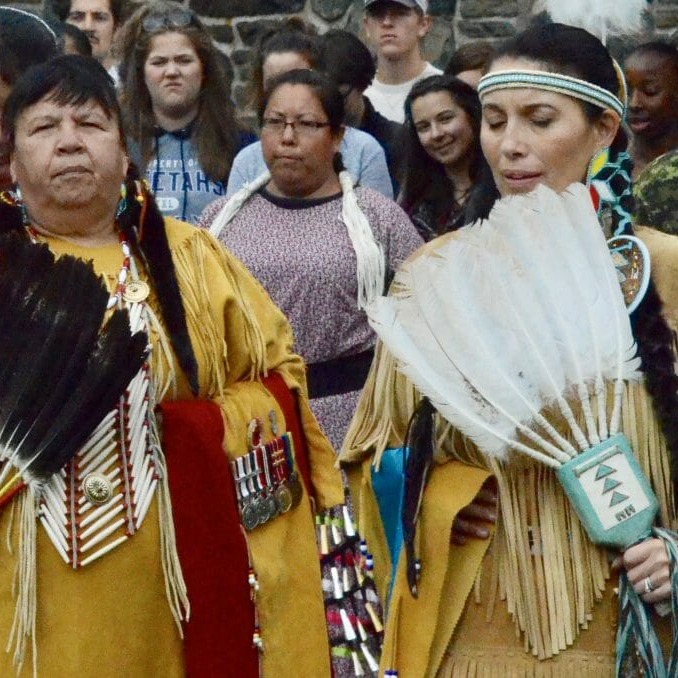
A celebration of oppression
The innate colonialism of a turkey feast
Thanksgiving: the tale of the Plymouth Pilgrims, who sailed across the Atlantic in 1620 with the hopes of finding wealth, land, and religious freedom amongst the promising shores of the New World.
The Pilgrims’ landing was a perilous one, and most passengers chose the endure their first New World winter from the safety of their ship. The winter was brutal – nearly half the pilgrims died from disease or malnutrition. In the light of spring, the Pilgrims made their move to land; they were welcomed by neighbouring tribes and educated in the ways of the land.
Their efforts proved worthwhile.
In November of 1621, the Pilgrims made their first corn harvest. In celebration, a feast was thrown and all were invited – including the Native Americans whose guidance had played a crucial role in the survival of the Pilgrims. This feast is what we have come to know as our beloved Thanksgiving.
The tale of the Plymouth Pilgrims is one of cooperation and appreciation, one that contrasts starkly with the dire reality that Indigenous peoples faced in the years of colonialism that followed – a reality that is still very relevant today.
The treatment of the Indigenous peoples by colonists throughout North American history, renders Thanksgiving a cruel irony.
The assistance from Indigenous peoples was vital toward the development of North America by ensuring the survival of the first colonists; in later years they contributed largely to North American prosperity through trade.
We would not be where we are today, if not for the aid of Indigenous peoples.
Not only did colonists fail to thank Indigenous peoples for their contributions, but they continued to the point of exploitation, without regard for the very people whom much of their wealth was attributed to.
Perhaps Thanks-taking is a more appropriate name for this holiday.
Colonists did not stop at taking land and resources; they continued to take away pieces of indigenous culture and dignity. All the while, colonists continue to celebrate Thanksgiving every year – a holiday dedicated to the taking of what was never theirs to take.
The unjust treatment of Indigenous peoples wasn’t just limited to the early phases of North American colonization. Much of the advances towards equality for Indigenous peoples in Canada have been within the past century. Even now, the state of Indigenous affairs is far from amended, as many reserves are still currently struggling with basic needs like housing and clean water. As well as larger issues like poverty and political strife.
Can Thanksgiving be celebrated respectfully? Given that to many Indigenous peoples in Canada it’s another reminder of the brutality their people faced.
The true spirit of Thanksgiving lies simply in giving gratitude for each of our lives and the good things that life entails, but this should not be the guiding factor in our modern interpretation of this holiday. That positive intention is clearly not the reality for Indigenous peoples.
The history behind Thanksgiving is not separable from its modern meaning – it shouldn’t be.
If we seek to progress from this history, it is not enough to simply acknowledge the atrocities that occurred and continue to celebrate Thanksgiving in parallel. As the consequences of colonialism are still evident in modern Indigenous culture, it must be a continuous effort towards atoning this injustice in our history; whether it’s effort from the Canadian government by addressing the poverty on Indigenous reserves, or from each and every one of us by addressing cultural insensitivity and racial discrimination we witness in Canadian culture.
Atoning includes the redefinition of a holiday that has its roots in a misguided and oppressive history.
In a country where Indigenous issues are still at the forefront of our national identity, we must lift the fog of tradition and recognize Thanksgiving in the entirety its implications.






